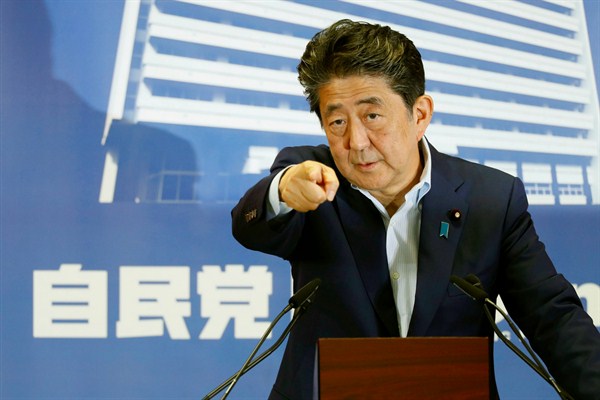Unlike the torrid, slow-burning drama of Brexit in the United Kingdom or the head-spinning tweets that emanate daily from the Trump White House, politics in Japan has become staid and predictable. That was the unavoidable conclusion from last weekend, when Japanese voters went to the polls to elect members of the upper house of the Diet, the country’s legislature.
As expected, Prime Minister Shinzo Abe’s ruling coalition retained its comfortable majority in the 245-seat House of Councillors, although it fell short of the two-thirds supermajority required to achieve Abe’s long-held goal of revising Japan’s constitution. The final tally showed Abe’s Liberal Democratic Party, or LDP, winning 57 of the 124 seats that were up for grabs, while the junior coalition partner, the Komeito, took 14. When combined with uncontested coalition seats, both parties now hold 141 seats. Even after including a smattering of lawmakers from outside the coalition who back revisions to the constitution, that still isn’t enough to pass a constitutional amendment.
Any revisions to Japan’s pacifist constitution would require the support of two-thirds of both houses of the Diet, as well as approval in a national referendum. Japan’s constitution has never been revised since it came into effect in 1947, although Abe has desired to do so ever since he became prime minister. Abe and other nationalists in the LDP have focused on Article 9, which explicitly renounces the use of force as a means of settling disputes, proclaiming that “land, sea, and air forces, as well as other war potential, will never be maintained” by Japan. They want to change that to recognize Japan’s existing Self-Defense Forces.

